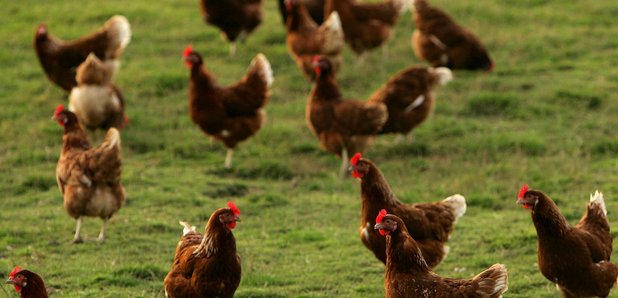Chickens Could Help Produce Drugs In Future
28 January 2019, 09:18

Chickens could soon offer a cost-effective way of producing high quality drugs to use on patients, new research has suggested.
The animals were genetically modified to produce human proteins in their eggs with the hope they could be used for further scientific research.
However, the study carried out at the University of Edinburgh's Roslin Institute found the drugs which were developed worked just as well as ones produced using existing methods.
Three eggs were enough to produce an adequate dosage, with hens able to lay up to 300 eggs a year.
Professor Helen Sang said: "We are not yet producing medicines for people, but this study shows that chickens are commercially viable for producing proteins suitable for drug discovery studies and other applications in biotechnology."
Eggs are already used for growing viruses used as vaccines, such as in the flu jab.
But in this case the chicken's DNA was encoded with proteins produced as part of the egg white - a human protein called IFNalpha2a, which has powerful anti-viral and anti-cancer effects, and the human and pig versions of a protein called macrophage-CSF.
Dr Lissa Herron, head of the avian biopharming business unit at Roslin Technologies, said: "We are excited to develop this technology to its full potential, not just for human therapeutics in the future but also in the fields of research and animal health."
Dr Ceri Lyn-Adams, head of science strategy, at the Biotechnology and Biological Sciences Research Council, added: "These recent findings provide a promising proof of concept for future drug discovery and potential for developing more economical protein-based drugs."
The research is published in BMC Biotechnology.






















